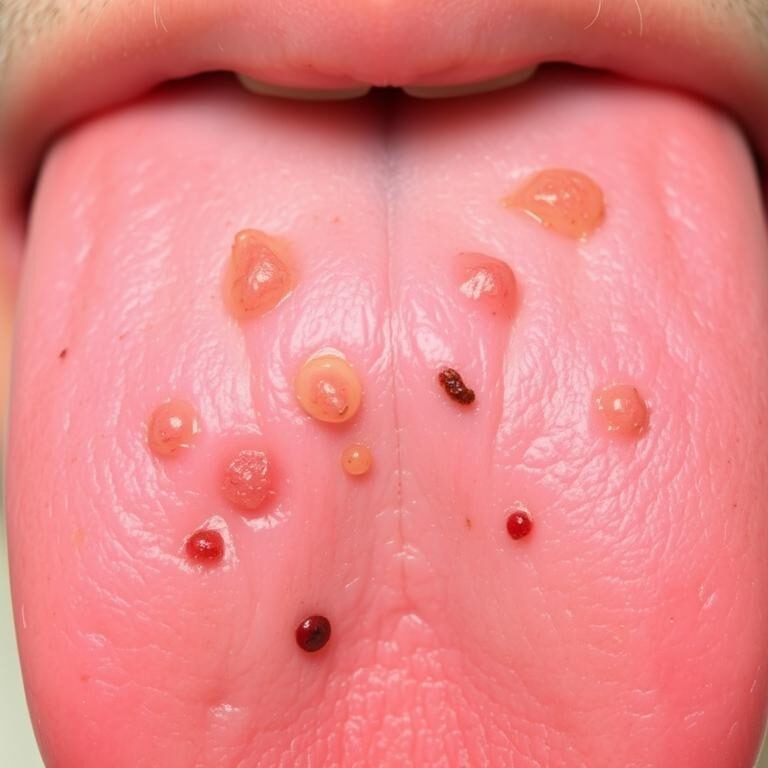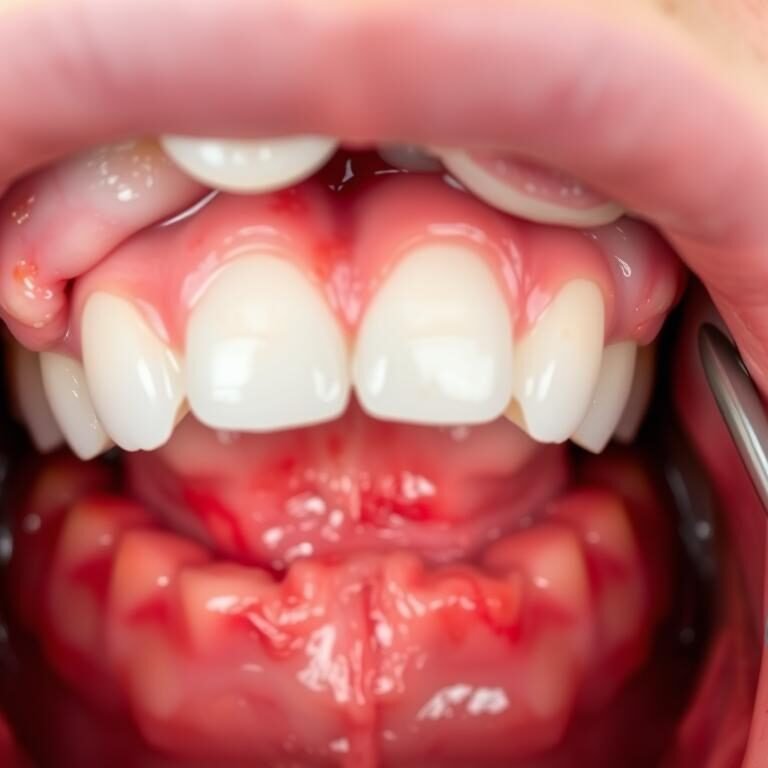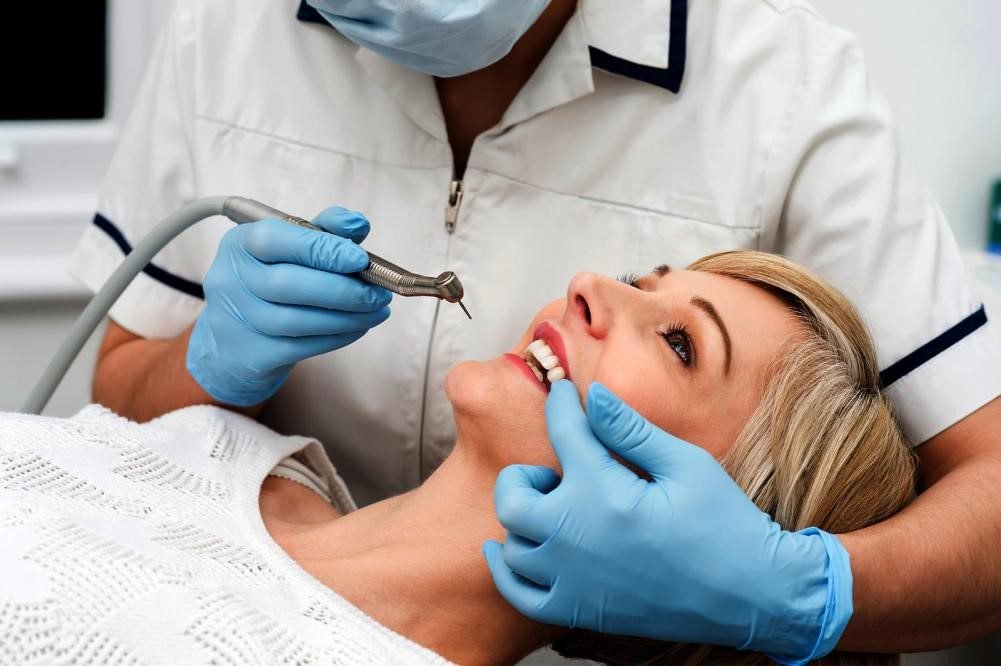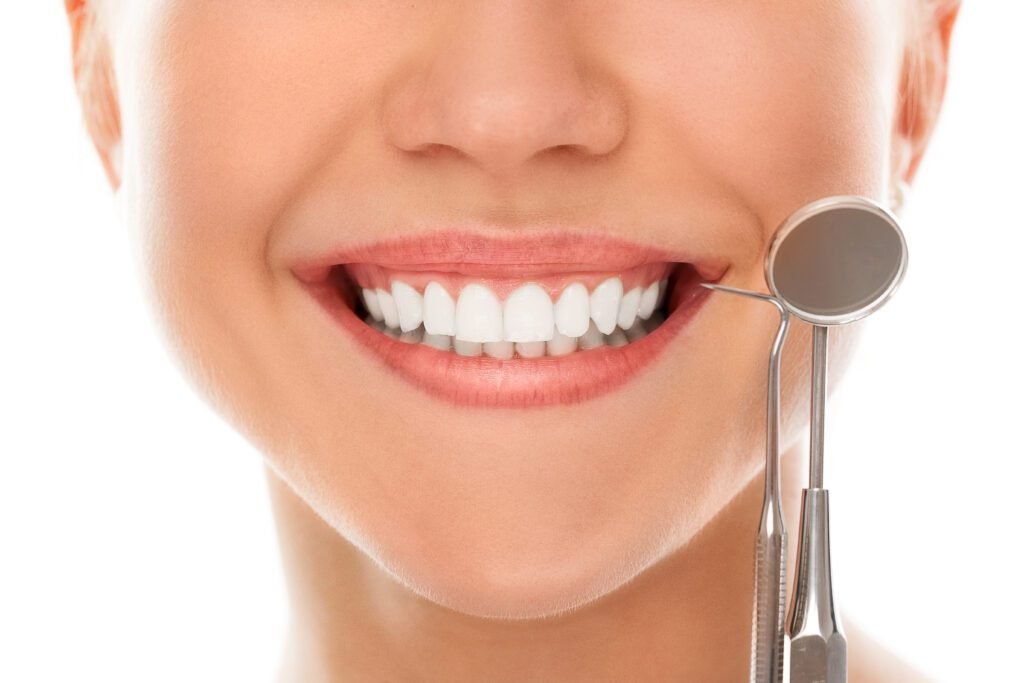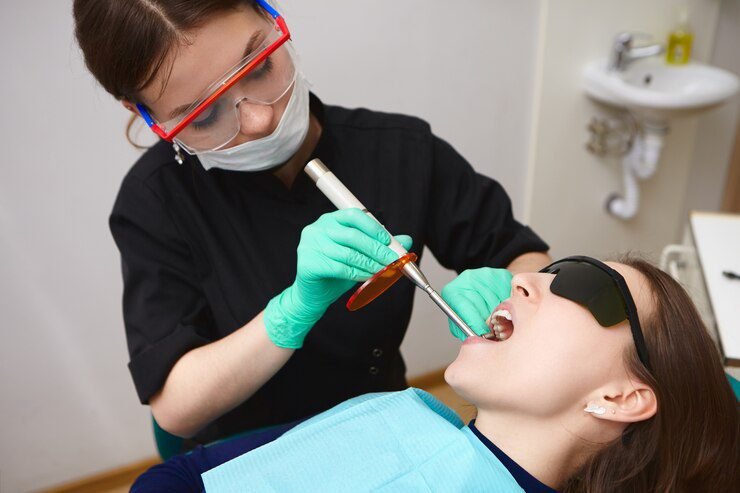Did you know that oral health professionals recommend removing dentures for at least six hours each day to ensure optimal gum health? This routine is essential because leftover denture adhesive can hinder that crucial rest period for your oral tissues. For many denture wearers, combating the stubborn residue of denture adhesives can be challenging. Fortunately, utilizing the best mouthwash to remove denture adhesive can significantly improve your oral hygiene and comfort.
Denture adhesive removal mouthwash does more than just freshen your breath; it effectively loosens and breaks down those hard-to-remove residues. Leftover adhesive not only inhibits the performance of fresh adhesive but could also lead to discomfort and poor fitting. In this article, you’ll uncover the best options available and how they function to provide a cleaner, more comfortable experience for effective mouthwash for denture wearers. Get ready to explore a world where oral care and denture maintenance come together seamlessly!
Understanding Denture Adhesives
Denture adhesives play a crucial role in enhancing the comfort and stability of denture wearers. These denture adhesive products are available in various forms, including pastes, powders, and strips, catering to different user preferences and needs. Each type has its unique method of application and effectiveness in creating a secure seal between the denture and gums.
While well-fitting dentures typically do not require adhesive, certain conditions may make their use necessary. As the bone that supports dentures shrinks over time, temporary relief can be provided through denture adhesives, helping stabilize the dentures and improving bite force and chewing comfort. Proper application of these denture adhesive types is essential to prevent discomfort or health issues.

For optimal oral health, it is recommended to remove dentures for at least six to eight hours daily. This practice not only allows the gums to rest but also facilitates proper cleaning to minimize bacterial growth and prevent staining. During this time, using mouthwash can effectively loosen and aid in the removal of denture adhesives.
Care should be taken with adhesives containing zinc, as excessive use can lead to elevated zinc levels in the body, resulting in neurological problems such as numbness and balance issues. Proper removal of denture adhesives, using warm water and saline solutions for rinsing, is vital for maintaining both comfort and oral health.
| Denture Adhesive Type | Form | Recommended Use |
|---|---|---|
| Paste | Gel or Cream | Strong hold, ideal for all-day wear |
| Powder | Loose Powder | Lightweight hold, often used for flexibility |
| Strip | Adhesive Strip | Quick application, less mess |
| Wafers | Thin Pads | Comfortable fit, minimal residue |
Using denture adhesives effectively can improve the quality of life for users, ensuring greater assurance and comfort. It is always advisable to consult with a dentist regarding the best practices for using these products, ensuring safe and effective application based on individual needs.
Why Remove Denture Adhesive Residue?
Proper oral hygiene plays a crucial role in maintaining denture health. One of the key aspects is the importance of denture adhesive removal. Residue left behind can lead to various complications, including gum irritation and increased risk of infections due to bacterial growth. Understanding the necessity of regularly removing adhesive residues is essential for a healthy dental routine.
When denture wearers apply adhesive, common methods, such as cream or powder, often leave remnants that can accumulate over time. Cream adhesives, typically applied in small circles akin to a pencil eraser, and powder adhesives, sprinkled as lightly as icing sugar, can both create problems if not properly managed. Thus, establishing an effective cleaning routine becomes critical.
Experts advise that dentures should be removed for at least six to eight hours daily, giving gums a chance to rest and recover. This practice enhances blood circulation and promotes healthy gums, forming a complete denture care routine. Moreover, following proper methods for adhesive removal, such as using a warm washcloth or toothbrush, can minimize any potential gum sensitivity.
Excessive use of denture adhesive does not provide a stronger hold but rather complicates removal, making it vital for users to follow label instructions. Dentists often recommend that adhesive should not be applied more than once daily. Over time, undisciplined use could lead to health issues, particularly with zinc-containing adhesives. Remaining vigilant about the removal of adhesive residue fosters better denture health and contributes significantly to overall oral hygiene.
Benefits of Using Mouthwash for Denture Care
Maintaining oral hygiene is vital for those using dentures. Utilizing a suitable mouthwash can provide several benefits of denture mouthwash, enhancing the care routine for denture wearers. One key advantage is its ability to dissolve adhesive residues. Mouthwash specifically designed for denture wearers contributes to a more comfortable wearing experience.

Incorporating mouthwash into daily routines offers additional perks. Regular use helps freshen breath, contributing to overall confidence in social situations. The antibacterial properties in many mouthwashes combat harmful bacteria, helping to reduce the risk of infections and oral health issues.
- Dissolves adhesive effectively
- Freshens breath instantly
- Reduces bacterial growth
- Enhances overall oral health
For optimal benefits, dentists recommend using mouthwash at least once daily, preferably after cleaning dentures. This routine aligns with guidelines that suggest brushing dentures and soaking them overnight to avoid potential oral health problems.
| Benefit | Description |
|---|---|
| Dissolves Denture Adhesive | Mouthwash can break down adhesive residues commonly found on dentures. |
| Fresh Breath | Regular mouthwash use helps maintain a fresh and pleasant breath. |
| Bacterial Control | Antimicrobial ingredients in mouthwash aid in controlling bacteria growth. |
| Convenient Addition | Integrating mouthwash is an easy way to enhance daily denture care routines. |
Incorporating a quality mouthwash into the denture care regimen not only benefits personal hygiene but fosters greater confidence for denture wearers when interacting throughout the day. Prioritizing daily cleaning protocols contributes to lasting health and comfort.
Best Mouthwash to Remove Denture Adhesive
Finding the best mouthwash to remove denture adhesive is essential for maintaining oral hygiene and comfort. Various mouthwashes on the market contain specialized formulations designed to effectively loosen and rinse away stubborn denture adhesive. These products not only help in breaking down residues but also offer benefits such as freshening breath and promoting gum health.
When selecting a mouthwash, consider the following factors to ensure it meets your needs as a denture wearer:
- Formulation: Look for mouthwashes that include ingredients known for their adhesive-removal properties, such as saline or natural extracts.
- Effectiveness: Choose products that demonstrate efficacy in loosening denture adhesives, allowing for easier rinsing.
- Taste: A pleasing flavor can make the rinsing process more enjoyable, encouraging consistent use.
Some popular options among denture wearers include the following:
| Brand | Product | Key Features |
|---|---|---|
| Listerine | Listerine Antiseptic Mouthwash | Effective against bacteria; helps loosen adhesive |
| Polident | Polident Mouthwash | Formulated specifically for denture wearers; freshens breath |
| Scope | Scope Outlast Mouthwash | Long-lasting freshness; removes adhesive residue |
The top mouthwash for denture wearers should be used regularly to maintain optimal oral hygiene and ensure the complete removal of adhesive residue. Using mouthwash in conjunction with basic cleaning routines, such as brushing with a soft-bristled toothbrush, can greatly enhance your denture experience.
Ingredients to Look for in Denture Care Mouthwash
Choosing the right mouthwash for denture care can significantly enhance oral hygiene and comfort. Certain denture mouthwash ingredients play a crucial role in making mouthwash effective for denture wearers. Here are some vital ingredients to look for:
- Antibacterial Compounds: These help eradicate harmful bacteria that can build up on dentures, ensuring healthier gums and a fresher breath.
- Enzymes: Enzymatic ingredients effectively break down adhesive residues. This property is vital for providing an effective mouthwash for denture wearers.
- Alcohol-Free Formulas: These are gentler on sensitive mouths. Alcohol can cause dryness, making the wearing experience less comfortable.
While it is essential to know what to include in your oral care regimen, being aware of potential harmful ingredients is just as important. Avoid products containing zinc, which some studies have linked to adverse effects with long-term use. This precaution aligns with the recommendations from the American College of Prosthodontists.
| Ingredient Type | Benefit | Avoid? |
|---|---|---|
| Antibacterial Compounds | Eliminate bacteria | No |
| Enzymes | Break down adhesive residues | No |
| Alcohol-Free | Gentle on sensitive mouths | No |
| Zinc | Potentially harmful | Yes |
By prioritizing these denture mouthwash ingredients, you can ensure that your mouthwash not only maintains hygiene but also promotes overall denture care efficiently.
Product Comparison of Top Mouthwashes for Denture Wearers
Choosing the right mouthwash is essential for maintaining the hygiene of dentures and alleviating adhesive residue. This product comparison focuses on popular mouthwash products for denture wearers, outlining different brands and their unique benefits. Understanding these distinctions helps in making informed choices tailored to individual needs.
Popular Brands Reviewed
- TheraBreath Fresh Breath Oral Rinse: Well-regarded for its ability to combat dry mouth and improve overall breath freshness.
- Polident Clean Your Dentures: Specifically formulated for denture care, this mouthwash offers antimicrobial properties to help reduce plaque.
- Chlorhexidine Gluconate: Often recommended for its efficacy in controlling oral bacteria, making it a strong option for denture wearers.
- Scope Mouthwash: Known for its refreshing flavor while providing a mild formula that is gentle on gums.
Key Features of Each Product
| Brand | Active Ingredient | Flavor | Alcohol-Free | Target Benefits |
|---|---|---|---|---|
| TheraBreath | Fluoride | Mint | Yes | Fights dry mouth, freshens breath |
| Polident | Chlorhexidine | Fresh Mint | Yes | Reduces plaque, antibacterial |
| Chlorhexidine | Chlorhexidine Gluconate | Mint | No | Controls bacteria, prevents infections |
| Scope | Contains fluoride | Cool Mint | Yes | Freshens breath, mild on gums |
Evaluating mouthwash products for denture wearers reveals a variety of beneficial features. From combating dry mouth to providing effective plaque control, these products cater to the unique needs of those using adhesive dentures. A thoughtful product comparison fosters better oral care choices and enhances overall hygiene for denture users.
How Mouthwash Helps with Denture Adhesive Removal
Mouthwash plays a significant role in facilitating the removal of denture adhesives, offering a range of benefits. The unique formulations of mouthwash for removing denture glue are designed to break down the sticky substances that can accumulate on dentures over time. Regular rinsing with warm water may not provide the same effectiveness, making mouthwash a preferred choice for many users.
One of the key factors is the viscosity of mouthwash. Unlike water, which may rinse off the surface without much impact, mouthwash can cling to the adhesive residue. This action allows it to penetrate and dissolve adhesive materials effectively. Furthermore, the acidity of several mouthwash formulations can help to neutralize residues and loosen their grip from the denture surface, enhancing overall cleaning results.
Utilizing mouthwash after removing dentures can greatly improve comfort and hygiene. Many users have reported significant differences in how clean their mouths feel when using mouthwash for adhesives compared to plain water. Incorporating mouthwash into daily dental care not only aids in the removal process but can also strengthen the care routine, promoting better oral health.
- The specific formulations target adhesive residues effectively.
- Helps maintain a fresher breath, contributing to overall comfort.
- Supports the health of gums by promoting regular rinsing routines.
Regular use of mouthwash not only supports a cleaner denture experience but also offers numerous benefits of mouthwash for adhesives. By integrating this product into daily care, denture wearers can enjoy improved oral hygiene and comfort overall.
Dosage Recommendations for Mouthwash Usage
Proper mouthwash usage plays a crucial role in maintaining oral health, especially for denture wearers. For those utilizing mouthwash specifically for dentures, understanding the recommended dosage can enhance effectiveness while minimizing side effects.
The standard mouthwash dosage for dentures typically recommended is 15 ml. This amount is suitable for rinsing, ensuring adequate coverage to help remove denture adhesive residue. Users should swish the mouthwash in their mouth for at least 30 seconds, allowing it to envelop the dentures and the surrounding gums thoroughly.
It is advisable to apply this mouthwash after brushing and flossing to maximize its benefits. Following this routine helps in reducing the bacterial load and refreshing your mouth significantly. To maintain optimum mouth hygiene, avoid eating or drinking for several hours after rinsing with chlorhexidine mouthwash. This practice allows for maximum adhesion of the active components, particularly beneficial before bedtime when saliva production decreases.
Considering the safe usage of chlorhexidine mouthwash, it typically is prescribed for short-term use, often around one month. Long-term use may lead to tooth staining or other side effects, so it is crucial to monitor any adverse reactions. Regular dental visits every six months can provide professional cleaning, which is helpful to mitigate staining.
| Usage Step | Details |
|---|---|
| Dosage | 15 ml of mouthwash |
| Rinse Duration | At least 30 seconds |
| Post-Usage Advice | Avoid eating/drinking for several hours |
| Recommended Frequency | Twice daily after brushing |
| Typical Treatment Duration | One month |
By adhering to the proper mouthwash usage guidelines, individuals with dentures can effectively manage adhesive residue while promoting overall oral health. Regular communication with dental professionals will provide tailored recommendations based on individual needs.
Precautions When Using Mouthwash for Dentures
Mouthwash safety for denture wearers hinges on several essential precautions to avoid complications. First, some individuals may experience allergic reactions to certain mouthwash ingredients. It’s vital to check the label carefully, especially for fragrances and preservatives that could irritate sensitive mouths.
Choosing alcohol-free mouthwash options stands out as an important consideration. Alcohol can cause dryness, potentially irritating the gums and affecting dentures. This is especially pertinent for those using dentures, as a dry mouth can lead to complications, such as poor adhesion and discomfort.
- Be aware of harmful ingredients that could interact negatively with denture materials.
- Consult dental professionals when uncertain about which mouthwash to use.
- Rinse with mouthwash only after removing dentures to maintain optimal cleanliness.
Many brands offer specially formulated denture mouthwashes. These products cater specifically to the needs of denture wearers, enhancing mouthwash safety for denture wearers while preserving denture integrity. It’s critical to seek advice when problems arise, such as discomfort or issues with denture fit.
Regular check-ups with your dentist remain essential. These appointments help ensure that any potential complications, like gum irritation or denture stomatitis, are addressed early. Such proactive measures foster better oral health and ensure your denture care routine remains effective.
| Precaution | Description |
|---|---|
| Check for Allergens | Review mouthwash ingredients for potential allergens or irritants. |
| Alcohol-Free Options | Choose alcohol-free mouthwash to avoid dryness and discomfort. |
| Consult Your Dentist | Discuss any concerns or issues regarding mouthwash and denture care with a dental professional. |
| Rinse After Removing Dentures | Always rinse with mouthwash after removing dentures to enhance cleanliness and avoid irritation. |
Cost Analysis of Effective Mouthwash for Denture Wearers
Finding the right mouthwash for denture care involves understanding both the cost of denture mouthwash and its overall value. Different products can vary significantly in price, influenced by their ingredients, brand reputation, and effectiveness. Below, we will explore budget-friendly and high-end options to cater to diverse needs and preferences.
Budget-Friendly Options
For those looking to save money without compromising quality, several affordable mouthwash options are well-regarded by denture wearers. These products often contain essential ingredients that effectively clean dentures while providing oral health benefits. The value of denture care products in this range stems from their capability to maintain hygiene at a lower price point.
- Generic brands that focus on functionality often start at low price points, making them accessible for most budgets.
- Value brands may not have flashy marketing, but they offer effective cleaning solutions for regular maintenance.
- Some budget options also include added flavors that enhance the cleaning experience, making them more appealing.
High-End Choices
For those willing to invest more in their oral care routine, premium mouthwash options offer advanced formulations and specialized ingredients. These products may provide enhanced effectiveness in removing denture adhesive and bacteria. The higher price tag correlates with the added value they bring to denture care.
- Premium brands often feature clinically-researched ingredients that target specific issues related to denture wearers.
- These mouthwashes may include components that promote fresh breath and offer antimicrobial benefits.
- Some high-end choices come in elegant packaging and may be marketed towards enhancing the overall user experience.
| Product Type | Price Range | Key Benefits |
|---|---|---|
| Budget Option | $5 – $12 | Effective cleaning, economical, basic flavoring |
| Premium Option | $15 – $30 | Advanced formulations, targeted benefits, stylish packaging |
By understanding the different price ranges and what they offer, denture wearers can make informed decisions that align with the cost of denture mouthwash and the long-term health benefits provided by quality denture care products.
Natural Alternatives to Commercial Mouthwash
For those seeking gentle yet effective solutions for denture care, making a natural mouthwash for dentures can be a fantastic option. Many homemade mouthwash recipes utilize common household ingredients to create a soothing and cleansing solution. Such recipes not only help with removing denture adhesive residue but also promote overall oral health. Consider the benefits of using natural ingredients while being mindful of their potential limitations.
DIY Mouthwash Recipes
Several simple homemade mouthwash recipes can provide excellent results for denture wearers. These recipes aim to be gentle on gums while tackling the issues related to adhesive residue. Here are three effective options:
- Baking Soda Mouthwash:
Mix 1 teaspoon of baking soda in a cup of warm water. Rinse your mouth for 30 seconds to neutralize acidity and freshen breath. Baking soda acts as a natural cleanser and can help loosen adhesive particles.
- Salt Water Rinse:
Dissolve 1 teaspoon of salt in a glass of warm water. Gargle and swish this solution around your mouth. Salt water effectively helps reduce inflammation while cleansing your gums.
- Herbal Infusion Mouthwash:
Steep 2 teaspoons of dried chamomile or peppermint leaves in a cup of boiling water. Let it cool, strain, and use it as a mouthwash. This herbal infusion offers soothing properties and a refreshing taste.


While these natural mouthwash for dentures recipes offer several benefits, it’s important to remember that they may not replace professional dental hygiene practices. Always consult a dental professional before relying solely on DIY mouthwash solutions.
| Recipe | Main Ingredient | Benefits |
|---|---|---|
| Baking Soda Mouthwash | Baking Soda | Natural whitening, reduces acidity, removes adhesive particles |
| Salt Water Rinse | Salt | Reduces inflammation, cleans gums, soothes irritation |
| Herbal Infusion Mouthwash | Chamomile or Peppermint | Soothes gums, freshens breath, provides calming effect |
Maintaining Oral Health with Denture-Friendly Mouthwash
Maintaining oral health with dentures requires a dedicated approach to hygiene. A denture-friendly mouthwash plays a crucial role in this routine. It helps reduce plaque buildup, which can lead to gum disease. Keeping the mouth clean not only benefits the gums but also enhances the longevity of both dentures and overall dental health.
Many denture wearers may not realize the risks associated with inadequate oral hygiene. Issues such as gum irritation, soreness, and the risk of bone loss in the jaw become prevalent without effective cleaning practices. Regular use of the best mouthwash for oral hygiene can help combat these problems.
- Reduces plaque buildup: Effective mouthwash can help prevent the formation of plaque on dentures.
- Prevents gum disease: A good mouthwash protects against inflammation and infection in the gums.
- Enhances breath freshness: Regular rinsing can minimize bad breath, a common concern among denture users.
- Stain prevention: Some mouthwashes contain ingredients that fight staining from food and beverages.
Incorporating such mouthwash into your daily routine requires consistency. It is advisable to clean dentures daily using a soft-bristled brush and a mild cleanser, and then follow up with rinsing using a denture-friendly mouthwash. Routine dental check-ups are equally important, ensuring that both natural teeth and dentures remain in optimal condition.
| Benefits of Mouthwash | Description |
|---|---|
| Plaque Reduction | Helps clear away food particles and bacteria, lowering the risk of plaque formation. |
| Gum Health | Prevents inflammation and potential gum disease through antibacterial properties. |
| Fresh Breath | Eliminates odor-causing bacteria, leading to fresher breath. |
| Stain Prevention | Addresses stains caused by common foods and drinks before they set in. |
Investing time in oral health with dentures, including the use of specially formulated mouthwash, contributes significantly to overall well-being. A diligent oral hygiene routine, when paired with regular professional advice, can lead to a happier and healthier smile.
Common Mistakes in Denture Care
Denture wearers often face challenges that can negatively impact their oral hygiene and denture longevity. Recognizing the mistakes to avoid with dentures serves as an essential step towards maintaining a healthy mouth and effective denture function.
- Ignoring Regular Checkups: Denture wearers should see their dentist every six months. Regular checkups help prevent potential denture problems, ensuring that oral health remains intact.
- Neglecting Oral Hygiene: Many individuals forget to brush dentures at least twice a day, with the ideal routine occurring after each meal. Plaque buildup can lead to bad breath and increase the risk of infection.
- Improper Use of Adhesives: Denture adhesives should be used carefully and in limited amounts. Overuse can create complications, especially with old or ill-fitting dentures.
- Self-Adjusting Dentures: Never attempt to adjust dentures independently. It’s crucial to seek professional help for adjustments or replacements to avoid discomfort.
- Ignoring Signs of Infection: Conditions like stomatitis and cheilitis may arise in some denture wearers. Symptoms include redness or small bumps under upper dentures and inflammation at the mouth’s corners.
Implementing proper denture care tips can significantly improve the experience for denture wearers. Consider the following key practices:
| Tip | Description |
|---|---|
| Regular Dentist Visits | Schedule dental appointments every six months to monitor your oral health and make necessary adjustments to your dentures. |
| Brush Dentures | Brush dentures thoroughly at least twice daily to prevent plaque buildup and maintain fresh breath. |
| Use Antibacterial Mouthwash | Incorporate antibacterial mouthwash containing fluoride to combat bacteria and keep your mouth healthy. |
| Avoid DIY Repairs | Do not attempt to glue broken dentures. Handle them with care and consult a professional for repairs. |
By steering clear of these common pitfalls and adhering to effective denture care tips, individuals can enjoy a more comfortable and healthier experience while using dentures.
Additional Tips for Effective Denture Maintenance
For those wearing dentures, following clear tips for denture care can significantly enhance the overall experience. One key practice is to remove dentures for at least 6 to 8 hours each day. This time allows oral tissues to rest and recover, which is essential for maintaining healthy gums.
Daily cleaning of dentures is crucial in preventing harmful bacteria buildup. Utilize a recommended denture cleaner or a simple solution like warm salty water to ensure thorough hygiene. It’s beneficial to rinse dentures with mouthwash to help combat adhesive residue and enhance freshness.
Consider scheduling regular check-ups with your dentist to evaluate the fit of your dentures. Over time, dentures may become ill-fitting due to changes in mouth tissue. An ill fit can accelerate bone loss and complicate the denture experience. Addressing these adjustments early on can save you from relying heavily on denture adhesives, which are intended for temporary use.
When selecting cleaning products, focus on ADA approved options. These products guarantee both safety and efficacy, aligning with best practices for maintaining dentures. A balanced diet further supports oral health by potentially slowing down gum disease progression, thereby enhancing your comfort and longevity of dentures.
Incorporating these thoughtful strategies into your denture care routine will contribute to better hygiene and overall satisfaction with your dentures.
How Often Should You Use Mouthwash for Dentures?
Understanding the ideal mouthwash usage frequency is crucial for effective denture maintenance. Denture wearers should ideally remove their dentures for a minimum of six to eight hours daily, allowing gum tissues to rest. This practice fits into a broader denture care routine, which includes regular cleaning methods to ensure optimal oral health.
Using mouthwash as part of your denture care routine can help break down and loosen denture adhesive residues. Daily rinsing with mouthwash should occur after initial warm water rinses and saline solutions, reinforcing the cleaning process. When choosing a mouthwash, consider one specifically formulated for denture wearers; this can enhance its effectiveness in removing residual adhesive.
For best results, incorporate mouthwash into the following recommended steps:
- Remove dentures for at least 6 hours to allow gums to rest.
- Rinse dentures with warm water three times for initial residue removal.
- Use saline solution for a secondary rinse to ensure all adhesive is eradicated.
- Brush dentures daily with a soft-bristled toothbrush.
- Finally, rinse with mouthwash to assist in clearing any remaining debris.
By adhering to this structured denture care routine, you promote better oral hygiene and a more comfortable wearing experience. Maintaining a consistent mouthwash usage frequency can significantly contribute to overall denture care and gum health.
Consulting with Your Dentist on Denture Care Products
Seeking dentist recommendations for dentures is essential for maintaining optimal oral health, especially when it comes to selecting appropriate denture care products. Dentists can assess your unique dental conditions and preferences, allowing them to offer personalized recommendations tailored to your specific needs. Regular consultations will help ensure that you’re using the right mouthwash and cleaning methods to effectively remove denture adhesive residue and promote overall gum health.
Professional advice on mouthwash can be particularly beneficial for individuals who may be unsure about their dental hygiene routine. During your visits, dentists may suggest alternatives to conventional mouthwashes, highlighting the importance of avoiding products with harsh chemicals or abrasives that could harm the denture material. Furthermore, engaging with your dentist will help address any concerns regarding the long-term effects of overusing denture adhesives, particularly those containing zinc.
Additionally, dentists play a crucial role in monitoring any adjustments needed for your dentures due to changes in your gums or bone structure. By prioritizing these consultations, you can ensure that your dentures fit comfortably and function optimally, reducing the necessity of adhesives altogether. This collaborative approach to denture care will ultimately lead to improved comfort and a healthier smile.
FAQ
What is the best mouthwash to remove denture adhesive?
The best mouthwash for removing denture adhesive typically contains specific ingredients designed to dissolve glue, reduce bacterial growth, and freshen breath. Look for products labeled as denture adhesive removal mouthwash or effective mouthwash for denture wearers.
How do I use mouthwash for denture care?
To effectively use mouthwash for denture care, rinse your mouth with the solution for 30-60 seconds after removing your dentures. This helps in breaking down leftover adhesive and promotes overall oral hygiene. Ensure you follow the dosage recommendations provided on the product label.
Are there any specific ingredients I should look for in denture mouthwash?
Yes, when choosing a denture care mouthwash, look for antibacterial compounds, enzymes that break down adhesives, and alcohol-free formulas for sensitive mouths. Avoid mouthwashes containing harmful ingredients like zinc.
Can I make my own mouthwash for dentures?
Absolutely! You can create a natural mouthwash for dentures using simple ingredients like baking soda, salt, and herbal infusions. These homemade recipes can effectively combat adhesive residue while promoting oral health.
What common mistakes should I avoid when caring for my dentures?
Common mistakes include using too much denture adhesive, skipping mouthwash, and improper denture storage. These can lead to discomfort and poor oral hygiene. Be sure to follow recommended practices for maintaining both your dentures and oral health.
How often should I use mouthwash if I wear dentures?
It is generally recommended to use mouthwash at least once daily as part of your denture care routine. This aids in removing adhesive residue and maintaining oral freshness. Adjust usage based on your individual needs and the type of mouthwash used.
Why is it important to remove denture adhesive residue?
Removing denture adhesive residue is crucial as leftover adhesive can lead to gum irritation, increased risk of infections, and overall discomfort. Proper removal allows gums to rest and decreases the chance of bacterial growth, enhancing oral health.
Should I consult my dentist about my mouthwash choices?
Yes, consulting with your dentist about denture care products is important. They can provide personalized recommendations based on your unique dental health, preferences, and specific denture conditions to ensure optimal care.









